Photographs: Tim Gray/Wikimedia Creative Commons
Don't miss the top 15 Asian landmarks in TripAdvisor's Travellers' Choice listings.
The world's largest travel website, TripAdvisor, has announced its Travellers' Choice Attractions awards that are based on the quality and quantity of traveller reviews of attractions, featured its site in various categories.
Today, we bring you the top 15 landmarks in Asia that you must visit. We begin with:
15. The Killing Fields (Choeung Ek), Phnom Penh, Cambodia
Site of a former mass grave of the victims of the Khmer Rouge regime, Choeung Ek is today a major tourist destination in Cambodia. It is the site where the Khmer Rouge regime is said to have executed over a million people between 1975 and 1979.
After the fall of the Khmer Rouge regime, the mass graves containing thousands of bodies were discovered here.
Today it is a memorial that is marked by a Buddhist stupa which as acrylic glass sides and filled with 5,000 human skulls. The present Cambodian government encourages tourists visiting the site and has entered into a 30-year agreement with JC Royal Co, a private Cambodian-Japanese corporation to maintain the site.
PICS: Top 15 landmarks in Asia
Image: Summer Palace (Yiheyuan), Beijing, ChinaPhotographs: Kallgan/Wikimedia Creative Commons
14. Summer Palace (Yiheyuan), Beijing, China
The UNESCO World Heritage site sprawling over 2.9 sq km in Beijing was once a former imperial palace. Three quarters of the expanse is water and is equally known for its natural beauty as it is for its majestic halls and pavilions. The Kunming Lake which covers over 2.2 sq km of the area is a human-made structure and the soil that was excavated was used to construct the Longevity Hill.
UNESCO described the palace as 'a masterpiece of Chinese landscape garden design. The natural landscape of hills and open water is combined with artificial features such as pavilions, halls, palaces, temples and bridges to form a harmonious ensemble of outstanding aesthetic value'.
PICS: Top 15 landmarks in Asia
Image: Bagan Temples, MyanmarPhotographs: Corto Maltese/Wikimedia Creative Commons
13. Bagan Temples, Myanmar
Located on the banks of Rive Ayeyarwady, Bagan has the largest concentration of Buddhist structures in the world. Many of these structures date back to the 11th and the 12th centuries and as a cluster, they attract almost as many visitors as Cambodia's Angkor Wat.
Rent a bicycle and keep a good deal of time aside to go around the site and locate a vantage point for a 360-degree view over the plain and hundreds of pagodas and watch the sun set over River Ayeyarwady.
PICS: Top 15 landmarks in Asia
Image: Temple of the Emerald Buddha (Wat Phra Kaew), Bangkok, ThailandPhotographs: Syph Mastorna/Wikimedia Creative Commons
12. Temple of the Emerald Buddha (Wat Phra Kaew), Bangkok, Thailand
Located inside the grounds of the Grand Palace, Thailand's most valued temple features the magnificent Emerald Buddha that dates back to the 14th century.
According to legend, the origins of this statue lie in India though record suggest that it was found in 15th century Cambodia before being moved to Laos in the following century. After this the statue is said to have remained in Vientiane for 215 years before landing in Thailand in the 18th century.
It has been prophesised that the stature would bring 'prosperity and pre-eminence to each country in which it resides'. Therefore it shouldn't come as a surprise that the Buddha is revered in Thailand and considered the country's protector.
PICS: Top 15 landmarks in Asia
Image: Temple of Dawn (Wat Arun), Bangkok, ThailandPhotographs: Globe-trotter/Wikimedia Creative Commons
11. Temple of Dawn (Wat Arun), Bangkok, Thailand
Considered to be the most famous and photographed temple in Bangkok, which features a soaring 70-meter-high spire decorated with tiny pieces of coloured glass and Chinese porcelain, Wat Arun, named after Aruna, the Indian God of Dawn and is one of the most well-known landmarks in Bangkok. The temple itself gets its name because of the radiance with which the first light of the morning reflects off the surface of the temple.
Wat Arun features at number 11 of the top landmarks in Asia.
PICS: Top 15 landmarks in Asia
Image: Grand Palace, Bangkok, Thailand as seen from the River Chao PhrayaPhotographs: Sodacan/Wikimedia Creative Commons
10. The Grand Palace, Bangkok, Thailand
Bangkok's famous palace complex was built in 1782 and features several magnificent buildings including Wat Phra Kaeo (Temple of the Emerald Buddha), which contains the beautiful Emerald Buddha that features at number 12 on this list.
The palace is one of Bangkok's most popular tourist attractions and a former resident of the King. Even though, the King no longer lives, here a part of the complex is off-limits to tourists as it is used for royal residences.
It would be a good idea to visit the palace on a weekday as several parts of it are closed for ceremonies over the weekend.
Constructed by King Rama I, the palace integrates many architectural styles and is worh the steep fee that you must pay to access it. Know also that there is a dress code with women being required to cover their upper arms and legs down to the thighs and men being required to wear long trousers and at the very least a t-shirt.
PICS: Top 15 landmarks in Asia
Image: Mehrangarh Fort, Jodhpur, IndiaPhotographs: Knowledge Seeker/Wikimedia Creative Commons
9. Mehrangarh Fort, Jodhpur, India
The largest of all forts in Rajasthan, Mehrangarh was founded in 1458 around which the city of Jodhpur grew. In the 500-odd years that it has stood atop the 150m high hill with 360 degree views from its three-km long ramparts around its edges, the fort has never once been captured. The fort recently hosted the 50th birthday celebrations of supermodel Naomi Campbell's boyfriend and found a place in celluloid history courtesy Christopher Nolan who shot parts of The Dark Knight Rises here.
PICS: Top 15 landmarks in Asia
Image: Temple of the Reclining Buddha (Wat Pho), Bangkok, ThailandPhotographs: Gerold Kogler/Wikimedia Creative Commons
8. Temple of the Reclining Buddha (Wat Pho), Bangkok, Thailand
Said to be the birthplace of traditional Thai massage, Wat Pho is believed to have been named after a monastery in India where Buddha had lived. The largest and oldest monasteries in Bangkok covering an area of 80,000 square metres, it is also home to more than a thousand Buddha images besides of course the 160 ft-long image of Buddha.
PICS: Top 15 landmarks in Asia
Image: Amber Fort and Palace, Jaipur, IndiaPhotographs: Skmalladi/Wikimedia Creative Commons
7. Amber Fort and Palace, Jaipur, India
Located on the outskirts of Jaipur, the Amber Fort (pronounced Amer) is one of the principal attractions of tourists travelling to the capital city of Rajasthan. Constructed by Raja Man Singh I the fort blends the Hindu as well as the Rajput elements of art sand architecture.
Perhaps the most fascinating element of the fort remains its four-level layout plan that consists of the Diwan-e-Khas or the Hall of Private Audience, the Diwan-e-Aam or the Hall of Public Audience, the Sheesh Mahal or the Palace of Mirrors among others. Each year the fort reports an average of 5000 visitors every day and received 1.4 million visitors in 2007.
Parts of the site date back to the 1700s, and the spacious zenana (palace for women) includes a rather simple but remarkable air conditioning facility.
The Zenana has a gorgeous view of the rugged surroundings. Try standing on the balcony to admire the view.
The fort being so vast is facilitated with elephant tours around on the grounds. If you're visiting Jaipur, you certainly should not miss Amber fort which is on the way to New Delhi. The fort and palace complex is vibrant with stories of various kings -- how they lived and what all they made within this complex.
In the evening there is also a sound-and-light show which covers the history from 1070 to the present day and is a must-see.
PICS: Top 15 landmarks in Asia
Image: Golden Temple, Amritsar, IndiaPhotographs: Vinish K Saini/Wikimedia Creative Commons
6. Golden Temple, Amritsar, India
The Golden Temple and Amritsar are synonymous with each other. And why not, the gurudwara that is covered in gold shines like a jewel against the Amritsar skyline. As our contributor Harnoor Channi-Tiwary noted, the temple almost always shows a new side each time you visit it at any hour of the day.
It isn't surprising then that the Golden Temple receives visitors from all religions and faiths, 'in part perhaps because there is something strangely serene about this place' Tiwary writes here. 'Strange because serenity is not something you expect in a place thronged by millions of people every day. Yet, as you sit on the banks of the sarovar (lake), the ripples in the water, the chant of the granthi and the sight of Golden Temple's reflection all mesmerise you'.
https://www.rediff.com/getahead/slide-show/slide-show-1-travel-in-pics-the-amazing-city-of-amritsar/20120912.htm
PICS: Top 15 landmarks in Asia
Image: Shwedagon Pagoda, Yangon, MyanmarPhotographs: Dr Sithu Win/Wikimedia Creative Commons
5. Shwedagon Pagoda, Yangon, Myanmar
Yangoon's biggest tourist attraction is this immense Buddhist shrine built approximately 2500 years ago. Located to the west of Kandawgyi Lake, on Singuttara Hill, the pagoda is a prominent landmark in the city's skyline and also the one of the most sacred places for Buddhists of Myanmar.
It is believed that the Shwedagon Pagoda has stood for over 2600 years and is counted amongst the oldest pagodas of Myanmar.
PICS: Top 15 landmarks in Asia
Image: Great Wall at Mutianyu, BeijingPhotographs: Nicolas Perrault III/Wikimedia Creative Commons
4. Great Wall at Mutianyu, Beijing
Lying 70km to the northeast of Beijing, the Mutianyu section of the Great Wall is one of the best-preserved parts of the Great Wall of China. This section of the Wall is fully restored and there are hand rails to help you up on the very steep parts. Needless to say, the views it offers are spectacular and there are several day tours and transit bus services to this section of the Wall.
PICS: Top 15 landmarks in Asia
Image: Bayon Temple, CambodiaPhotographs: Hans Stieglitz/Wikimedia Creative Commons
3. Bayon Temple, Cambodia
Constructed in the late 12th or early 13th century, the Bayon Temple served as the official state temple of the Mahayana Buddhist King Jayavarman VII. The temple, located at Angkor Thom, stands at the very centre of the king's capital and was improved upon and modified by later kings depending upon their religious beliefs.
However, the most striking features of Bayon are the many huge and serene-looking stone faces, seen pictured above.
PICS: Top 15 landmarks in Asia
Image: Taj Mahal, Agra, IndiaPhotographs: Ankit Mehra/Wikimedia Creative Commons
2. Taj Mahal, Agra, India
Inarguably India's most recognisable monument to the world, the Taj Mahal was built by Shah Jahan in the memory of his wife Mumtaz Mahal and has been a UNESCO World Heritage Site since 1983.
Regarded as the finest example of Mughal architecture, the Taj Mahal is essentially an integrated complex of structures that took 21 years and thousands of artisans and craftsmen to complete. The Taj Mahal also appears on the new listing of the New Seven Wonders of the World.
PICS: Top 15 landmarks in Asia
Image: Angkor Wat, CambodiaPhotographs: Bjorn Christian Torrissen/Wikimedia Creative Commons
1. Angkor Wat, Cambodia
It may come as a surprise that the largest Hindu temple complex in the world does not exist in India but rather in Cambodia. Angkor Wat continues to remain a prominent religious centre and one that has become synonymous with Cambodia by also appearing on its national flag. TripAdvisor describes Angkor Wat as being unrivalled in its beauty and state of preservation.
Constructed by the Khmer King Suryavarman II in the early 12th century, Angkor Wat is dedicated to Lord Vishnu and hold a position of great importance in Khmer architecture.
The Angkor Archaeological Park of which Angkor Wat and the Bayon Temple are a part was named as one of UNESCO's World Heritage site in 1992.
Earlier this month Cambodia joined hands with Australia to better preserve the complex by launching the Angkor Sunset Finder (angkorsunsets.com) that offers alternatives to the usual (and overcrowded) spots from where you can view stunning sunsets.

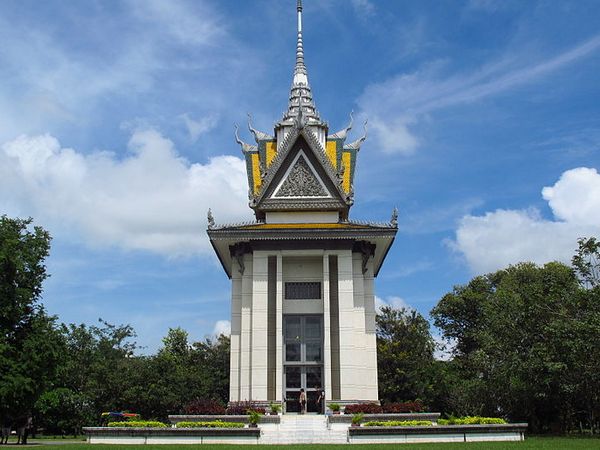
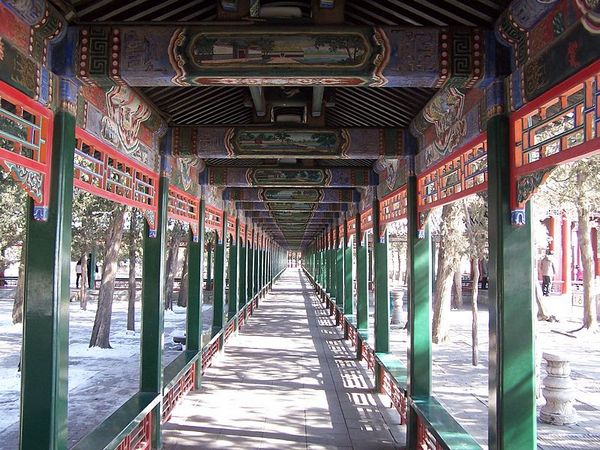
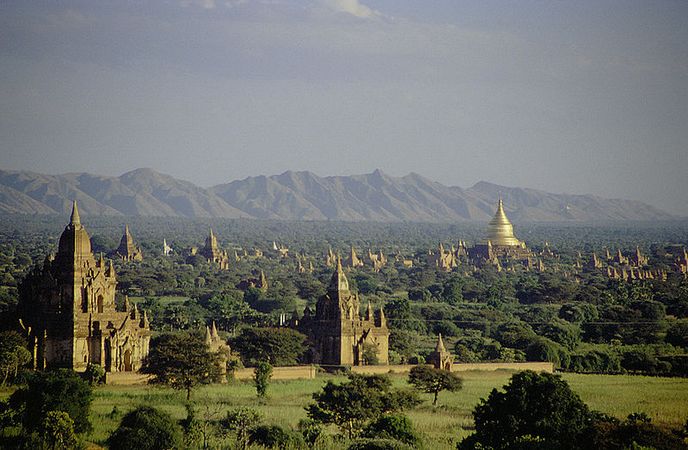
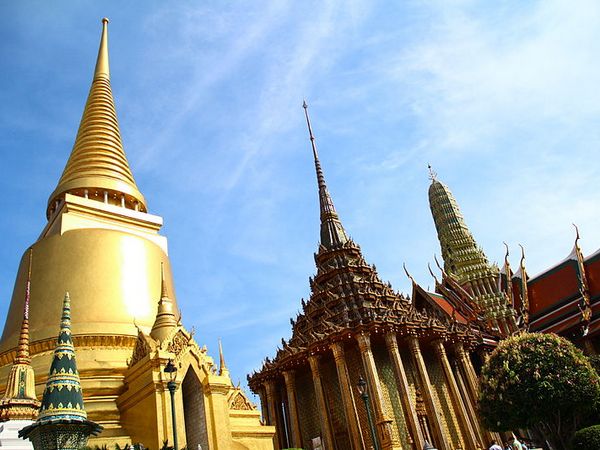


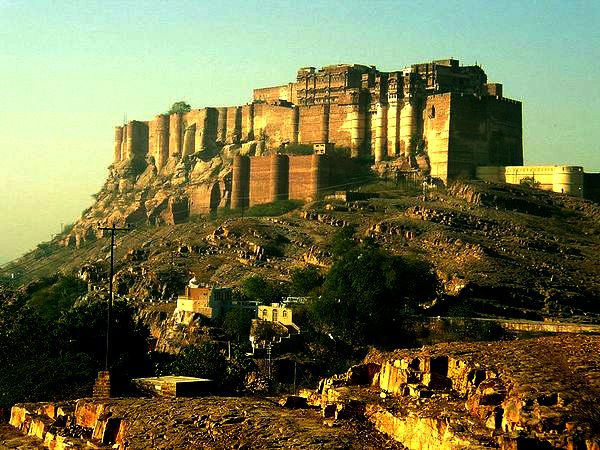
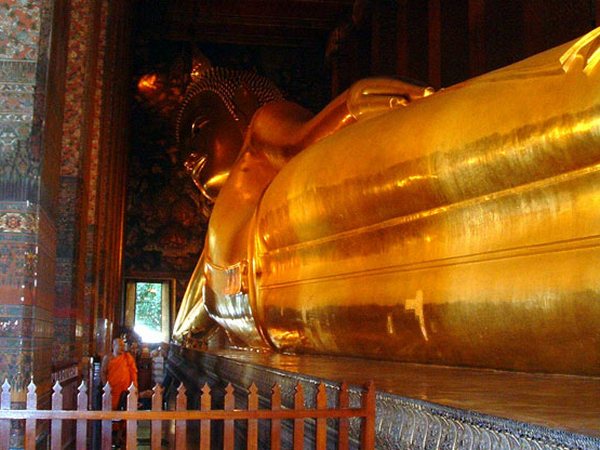
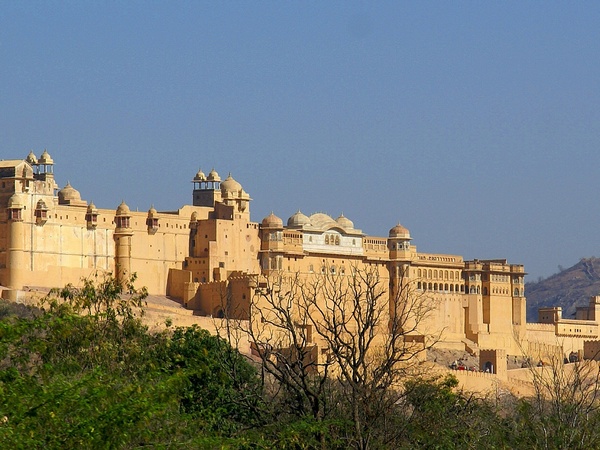
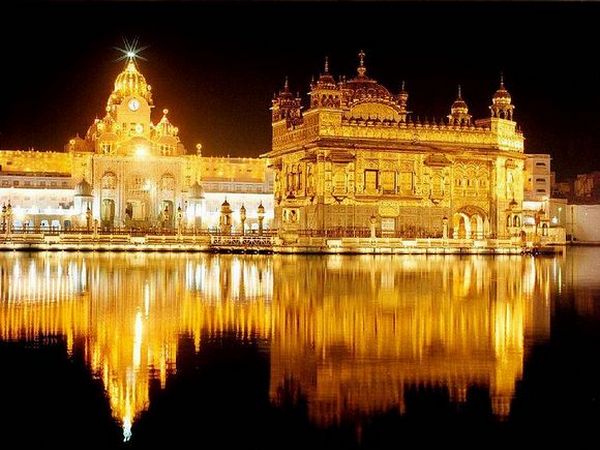
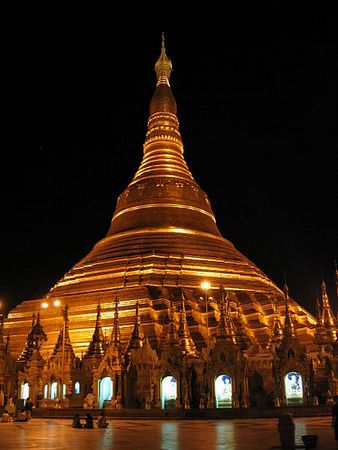
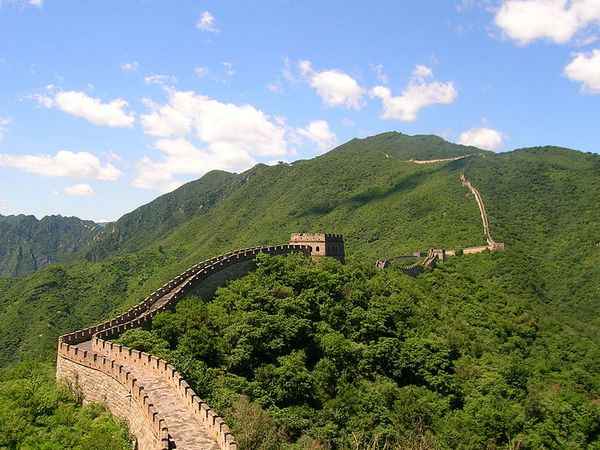
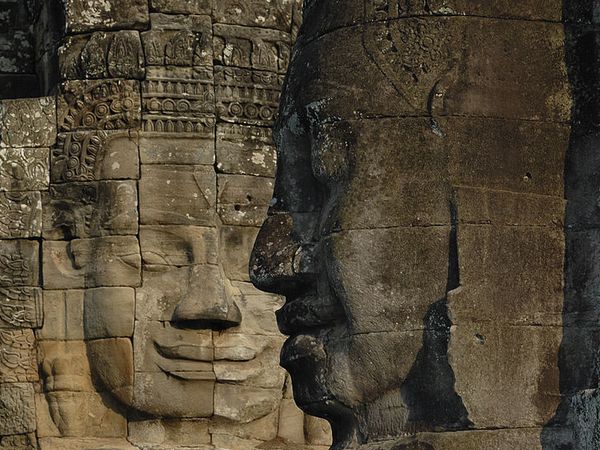
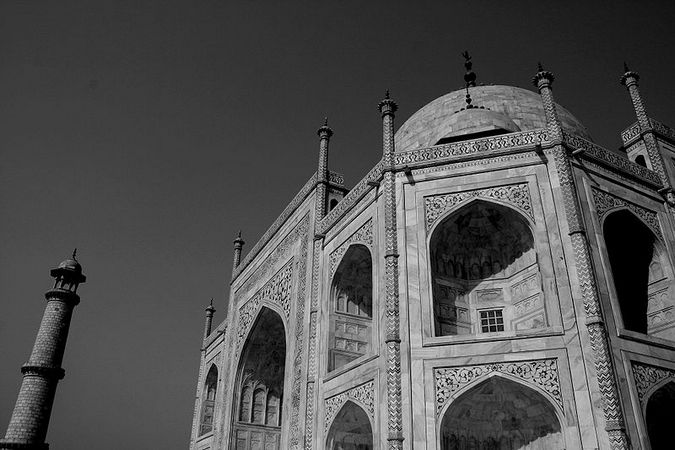
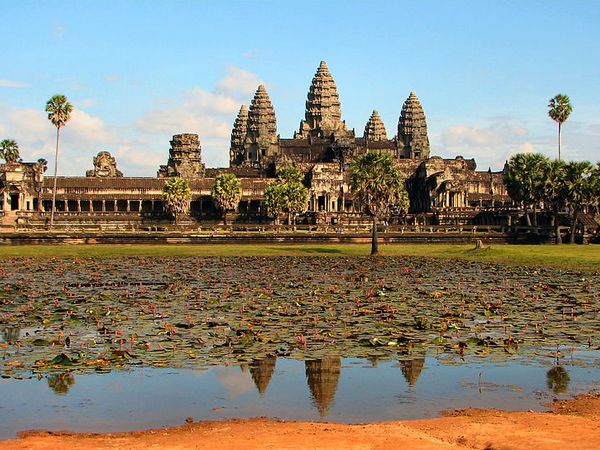
Comment
article